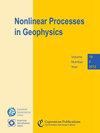简要交流:气候科学作为一个社会过程-历史,气候决定论,默顿规范和后常态
IF 2.4
4区 地球科学
Q3 GEOSCIENCES, MULTIDISCIPLINARY
引用次数: 1
摘要
摘要多年来,气候这个话题——在“正常天气”的意义上——在西方传统中作为社会差异和人类行为差异的一个可能的解释因素而引起了人们的注意。气候,以及它对社会的影响,是西方思想和观念的一个重要组成部分。本文从一个自然科学家的角度,概述了气候对人类和社会影响的思想历史,以及气候决定论思想的出现。这种意识形态倾向于认为西方人比世界其他地方的人优越,为殖民主义提供了合法性。在现代,当自然科学建立了自我批判的过程(可重复性,可证伪性)和规范(如被称为CUDOS的默顿规范)时,气候问题的传统宿主,即地理学,失去了控制,而物理学取而代之。这种气候科学的“科学化”导致了一种更系统、更批判性和更严格的方法来建立和测试假设和概念。然而,在严谨的方法论上的进步的同时,人们也失去了对气候几乎不是社会差异和发展的关键解释因素的认识。因此,该领域的大部分人在不知情的情况下开始悄悄恢复被抛弃的气候决定论概念。气候科学发现自己处于一种“后常态”状态,这导致政治效用经常占主导地位,而不是系统的严谨性。本文章由计算机程序翻译,如有差异,请以英文原文为准。
Brief communication: Climate science as a social process – history, climatic determinism, Mertonian norms and post-normality
Abstract. For ages, the topic of climate – in the sense of “usual weather” – has in the western tradition attracted attention as a possible explanatory factor for differences in societies and in human behavior. Climate, and its purported impact on society, is an integrated element in western thinking and perception. In this essay, the history of ideas about the climatic impact on humans and society and the emergence of the ideology of climatic determinism are sketched from the viewpoint of a natural scientist. This ideology favored the perception of westerners being superior to the people in the rest of the world, giving legitimacy to colonialism. In modern times, when natural sciences instituted self-critical processes (repeatability, falsification) and norms (such as the Mertonian norms named CUDOS), the traditional host for climate issues, namely, geography, lost its grip, and physics took over. This “scientification” of climate science led to a more systematic, critical and rigorous approach of building and testing hypotheses and concepts. This gain in methodical rigor, however, went along with the loss of understanding that climate is hardly a key explanatory factor for societal differences and developments. Consequently, large segments of the field tacitly and unknowingly began reviving the abandoned concept of climatic determinism. Climate science finds itself in a “post-normal” condition, which leads to a frequent dominance of political utility over methodical rigor.
求助全文
通过发布文献求助,成功后即可免费获取论文全文。
去求助
来源期刊

Nonlinear Processes in Geophysics
地学-地球化学与地球物理
CiteScore
4.00
自引率
0.00%
发文量
21
审稿时长
6-12 weeks
期刊介绍:
Nonlinear Processes in Geophysics (NPG) is an international, inter-/trans-disciplinary, non-profit journal devoted to breaking the deadlocks often faced by standard approaches in Earth and space sciences. It therefore solicits disruptive and innovative concepts and methodologies, as well as original applications of these to address the ubiquitous complexity in geoscience systems, and in interacting social and biological systems. Such systems are nonlinear, with responses strongly non-proportional to perturbations, and show an associated extreme variability across scales.
 求助内容:
求助内容: 应助结果提醒方式:
应助结果提醒方式:


